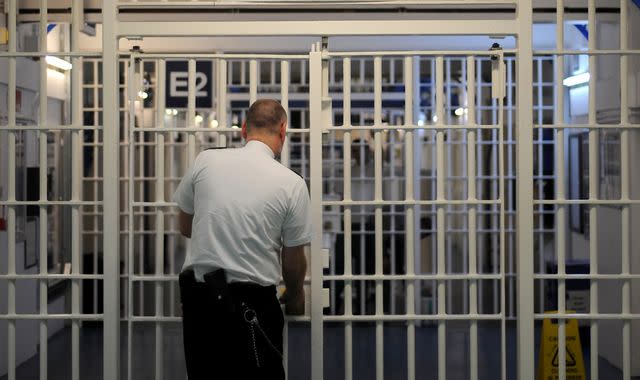Early release prison scheme causing 'high-risk' offenders to be let out, new report finds

An early release prison scheme, used to free up space in jails across England and Wales, is causing "high-risk" offenders to be let out, some of whom are a "risk to children", according to a new report.
The examination of HMP Lewes, by the chief inspector of prisons, found that "safe risk management" is being undermined.
The findings, published on Tuesday, were part of a wide-ranging inspection at the East Sussex prison in February, but some similar problems were highlighted in a parallel report into Chelmsford prison published last week.
The government says that those guilty of serious crimes, such as terrorism or sexual offences, plus those serving sentences of more than four years, are not eligible for early release.
But this inspection at Lewes found an example of a prisoner who had their release date brought forward under the early release scheme despite deeming him a "risk to children" and "having a history of stalking, domestic abuse, and being subject to a restraining order".
Another example cited a "high-risk prisoner with significant class A drug misuse issues" being released without a home.
"This release took place despite appeals for the decision to be reversed and staff having serious concerns for his and the public's safety," it said.
The report makes clear that the inspection was done only months into the scheme launching in October, and hopes the "serious concerns" they raised about its implementation were "teething troubles".
However, these findings follow Sky News exposing widespread concern among the probation service about the early release measure, which has been regularly revised and updated since it was launched in October.
Labour is calling for the government to be more transparent about the parameters of the scheme.
"The public will rightly be worried to hear of cases where violent prisoners are being released without a proper assessment of the risk they pose to the public, and specifically children," said the shadow justice secretary, Shabana Mahmood.
"It's being left to prison inspectors to tell the public the truth because this government is refusing to level with them on the scale of the prisons and probation crisis," she said.
Prisons across England and Wales are under pressure, and severely overcrowded.
Figures published on Friday showed 87,691 people are currently behind bars in England and Wales.
The number of people that can be held in "safe and decent accommodation" in prison, known as the "certified normal accommodation" or "uncrowded capacity", is considered by the Ministry of Justice (MoJ) to be 79,507.
That means the current overall system is at 110% capacity, or overcrowded.
Read more:
King Charles discusses cancer treatment side effects
Health secretary unable to guarantee no more maternity scandals
Rwanda law disapplied by NI court
Responding to the inspectorate report, the chief executive of the Howard League, Andrea Coomber, said: "This is the latest in a seemingly never-ending line of inspection reports revealing major problems in a prison system that has been asked to do too much, with too little, for too long."
"While action to ease pressure on jails is necessary, this temporary measure is no substitute for what is really needed: a more sensible response to crime that puts fewer people behind bars and more money into services that can help them," she said.
As of 23 May, eligible male prisoners across 84 prisons in England and Wales can be freed up to 70 days before the end of their sentence. This has been extended from the original 18 days as overcrowding pressures in prisons continue.
A Ministry of Justice spokesperson said: "While we will always ensure there is enough capacity to keep dangerous offenders behind bars, this scheme allows us to ease short-term pressures on prisons by moving some lower-level offenders at the end of their custodial term on to licence.
"These offenders will continue to be supervised under strict conditions such as tagging and curfews, and the prison service can block the earlier release of any individual who poses a heightened risk."


